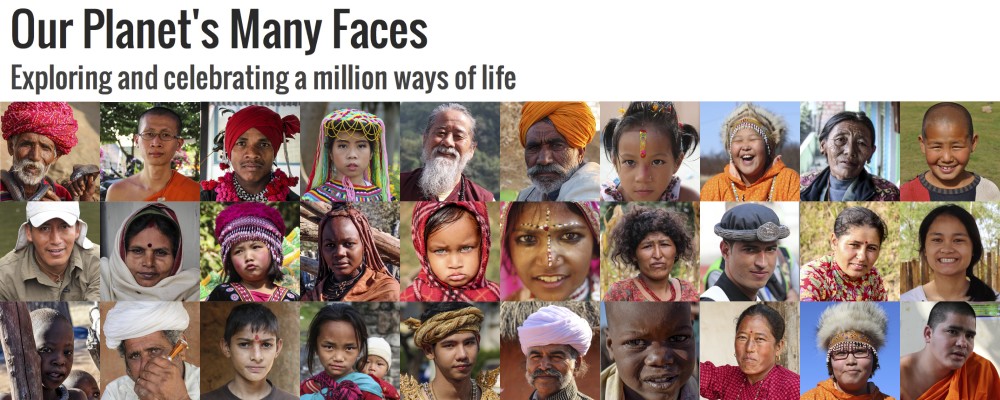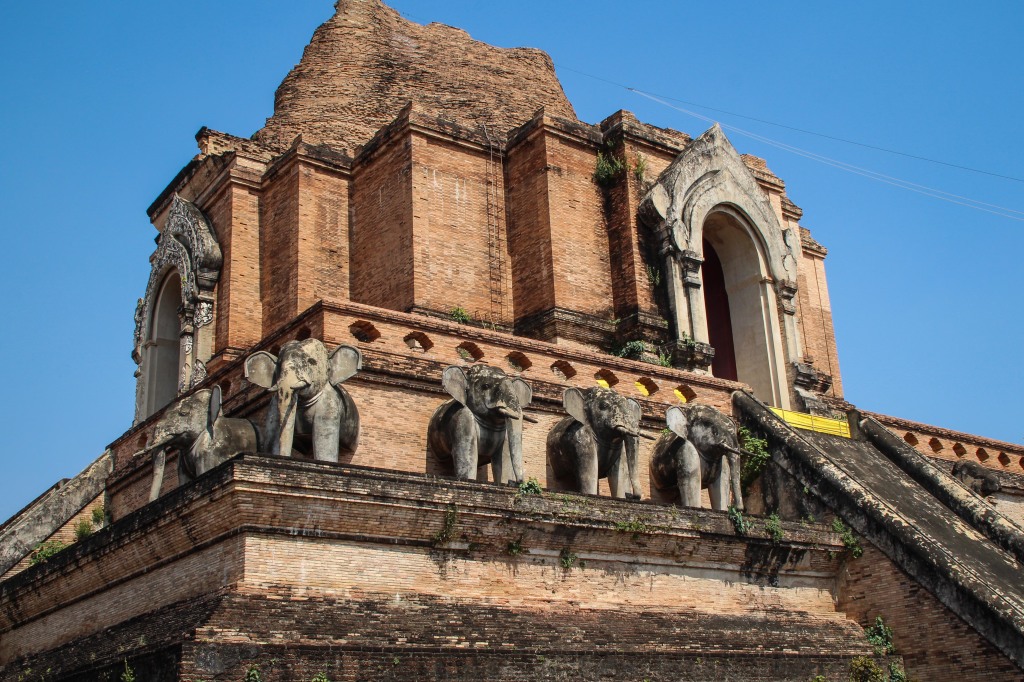
The Northern Thailand city of Chiang Mai is home to over 300 temples, scattered throughout the old city and surrounding forested hills. Among the more famous temples is Wat Chedi Luang, a 700-year-old temple whose age can be seen in its weathered, crumbled appearance.
The temple is a busy location, attracting hundreds of daily worshipers and tourists. However, the temple also lies at the heart of the Mahamakut Buddhist University, where approximately 300 Buddhist monks represent roughly 10% of the student population. For these students, university life consists of a combination of academics, spirituality, social life, and discipline.
A Day in the Life of a Monk Student
According to Bala, a 6th year monk and 3rd year university student, the daily schedule for monk students is structured and disciplined. For him, a typical day begins at 5:00 AM with an hour of chanting and meditation.
He and the other monks then leave the temple and walk throughout the city to collect donations of food. Devout Thai Budhists consider this act, “making merit,” and believe that it, along with other good deeds, will bring them happiness and peace.
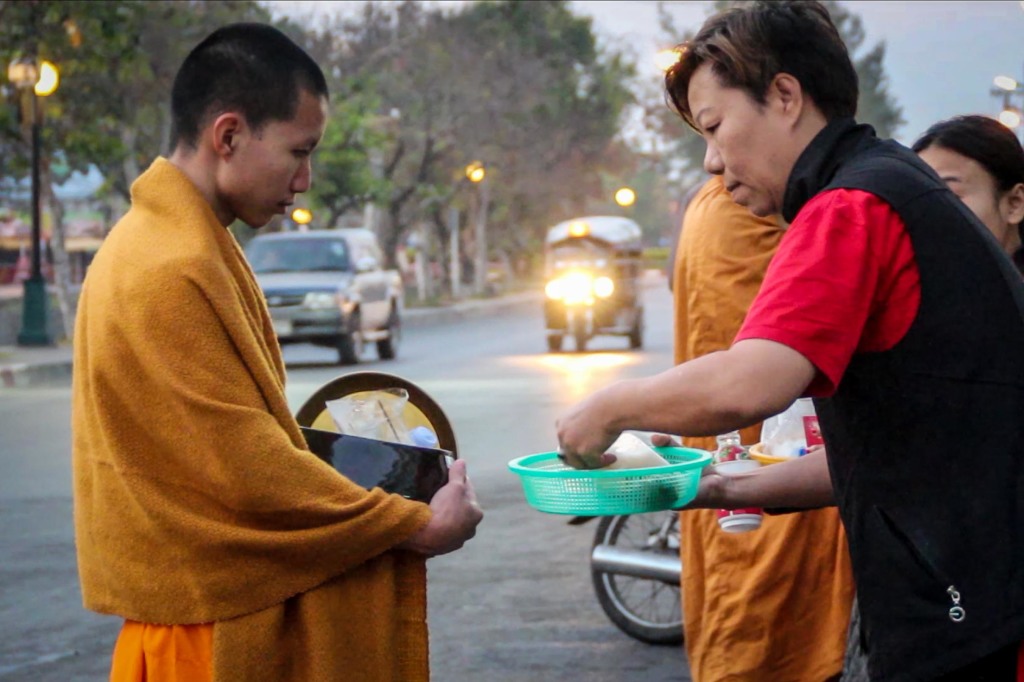
The young monks then return to the temple, where they eat and attend classes for the remainder of the day. The evening is often filled with various personal tasks and studying. They skip dinner, as monks are expected to fast in the evening.
Thummarat, a 2nd year student and 7th year monk, explains that monks receive a special scholarship at the Buddhist Universities in Thailand, making education accessible to many young monks. He acknowledges that some students might become monks in order to take advantage of the education opportunities. However, he believes that most students are sincere. The stories of both Bala and Thummarat are illustrations of that sincerity.
The pursuit of Happiness
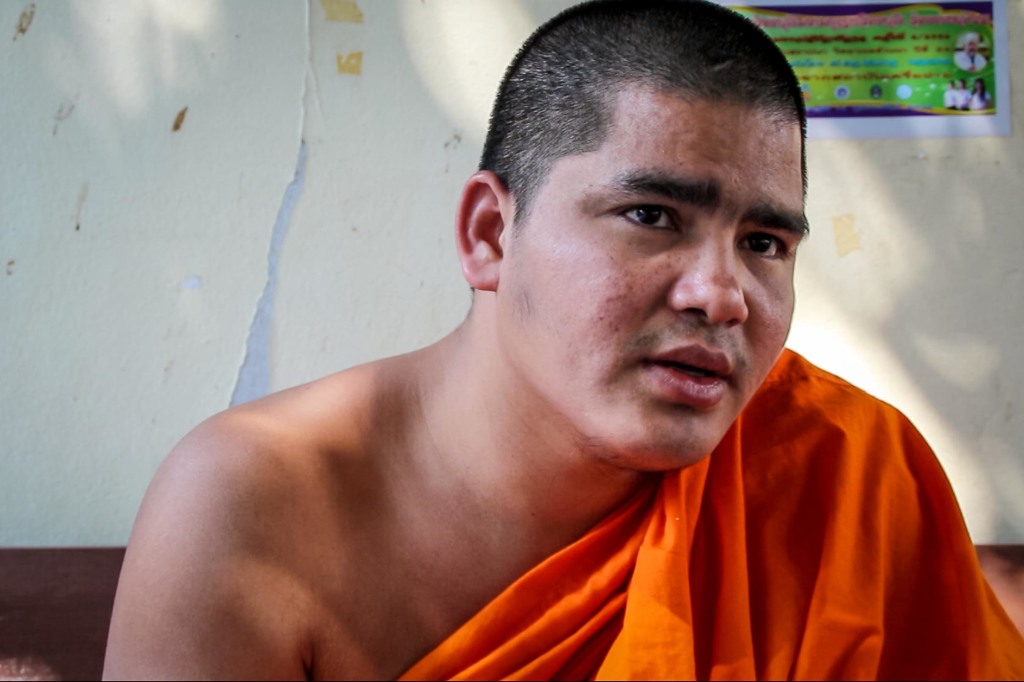
Bala is a young man in his mid-twenties, with deep, dark facial features. His expressive hand gestures and facial features make up for any language barriers he encounters. He speaks in a soft, even voice.
Bala is originally from Myanmar, where he became a novice monk six years ago, seeking the happiness and contentedness that he observed in other monks’ lives.
“I was a novice. I was very, very happy to my temple and to my abbot. So after, I became a monk,” Bala recalls. He describes the joy he and his family shared the day he was ordained as a full monk.
“There was a ceremony,” Bala describes. “My parents [were] very, very happy, my abbot [was] very, very happy, my friends [were] very, very happy. Because this is my life. My life as a monk.”
Though there were education opportunities available to him in Myanmar, he felt that the opportunity to travel to Chiang Mai would provide him a better opportunity to practice English, which he hopes to teach some day.
Bala is now in his third year at the university, where he has the daily opportunity to practice English with his classmates and foreign visitors to the temple.
Seeking Enlightenment
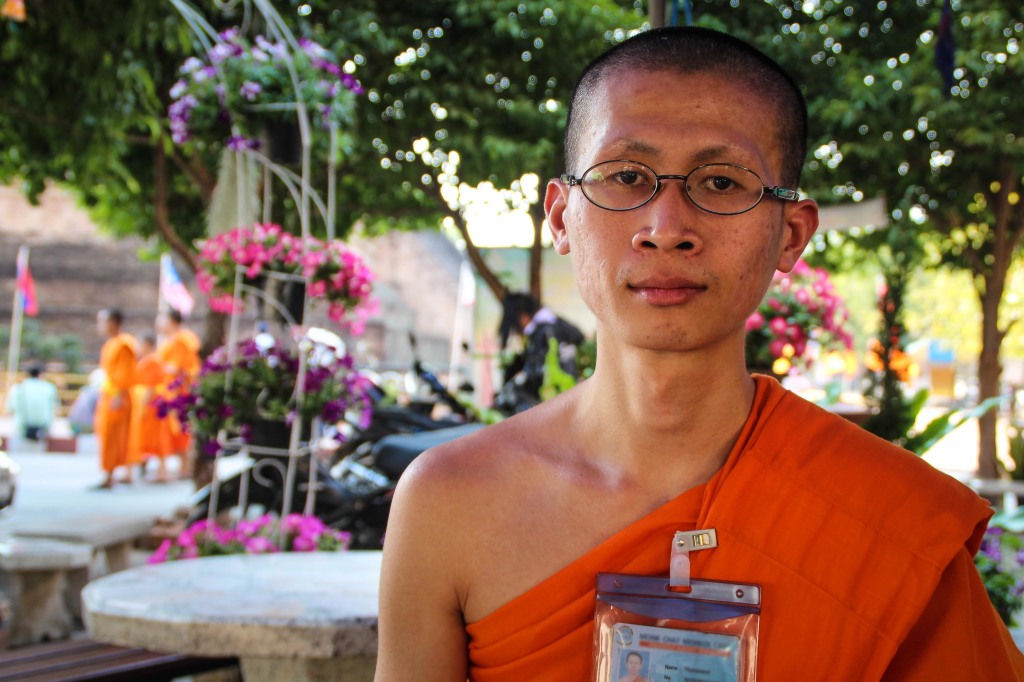
Thummarat is a thin man in his mid-twenties, cautious as he speaks. He is originally from the countryside of the Lampang province, which was the only home he knew until two years ago.
He recalls his childhood, attending funerals and quietly observing the events.
“When I was younger, I went to many funerals. Before people cremate, people want to say goodbye. But I see at every funeral, they cry a lot. My question… why do people cry a lot?”
At the age of 16, he decided to further seek understanding of suffering, and became a novice monk. He focused on mastering the art of meditation, in which he practiced peace of mind and silencing his ego, and also seeks enlightenment.
“The noble goal of Buddhism is to understand. To get enlightenment,” Thummarat explains. “For people who want to understand, they have to keep practicing to make perfect.”
When Thummarat decided to pursue education in Chiang Mai, his family showed him supported, despite having never lived outside of their home province.
“My family, we understand each other,” he explains. “This is my life. So they think, ‘you can be what you want to be.’ ”
City life was new to Thummarat, and he had to adapt to his new setting. “In the countryside, (it is) very quiet,” he describes. “I can say, in the city, people never sleep. Loud all the time.”
The first year also provided Thummarat with some difficult challenges in finding direction. “I was almost lost, but I found my way,” he describes with a subtle grin. Thummarat is studying English and would like to become a teacher some day. In addition to language, he would like to teach subjects of morality, a topic he has become especially passionate about.
“What is moral compass of life? How to be a good person in this life,” he asks, leaving a long thoughtful pause. He provides no answers, but rather, food for thought.
“Nothing is permanent, all things deteriorate. But one thing about humans that is amazing. We have spirit.”
A committed Life
According to Thummarat, it is customary for most Thai men to become monks at some time or another, and it is therefore not uncommon for men to experience a couple months or years as a monk.
“It is rare for a young monk to spend his whole life as a monk,” he explains, adding that life-committed monks are often older in age. “But I want to. I will stay a monk.”
Bala also appears to be committed to his future as a monk. “Because a monk is very happy,” he describes. “In present time, [I am] very happy. I will be very happy in the future. In my future as a monk.”
